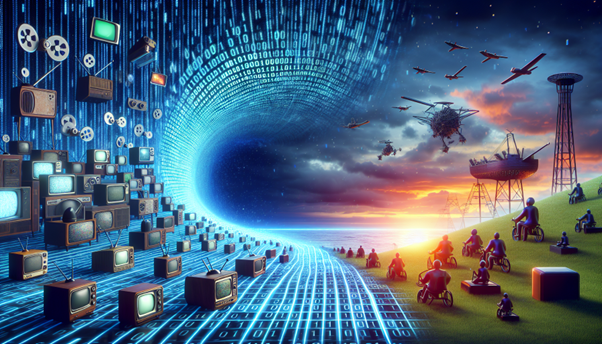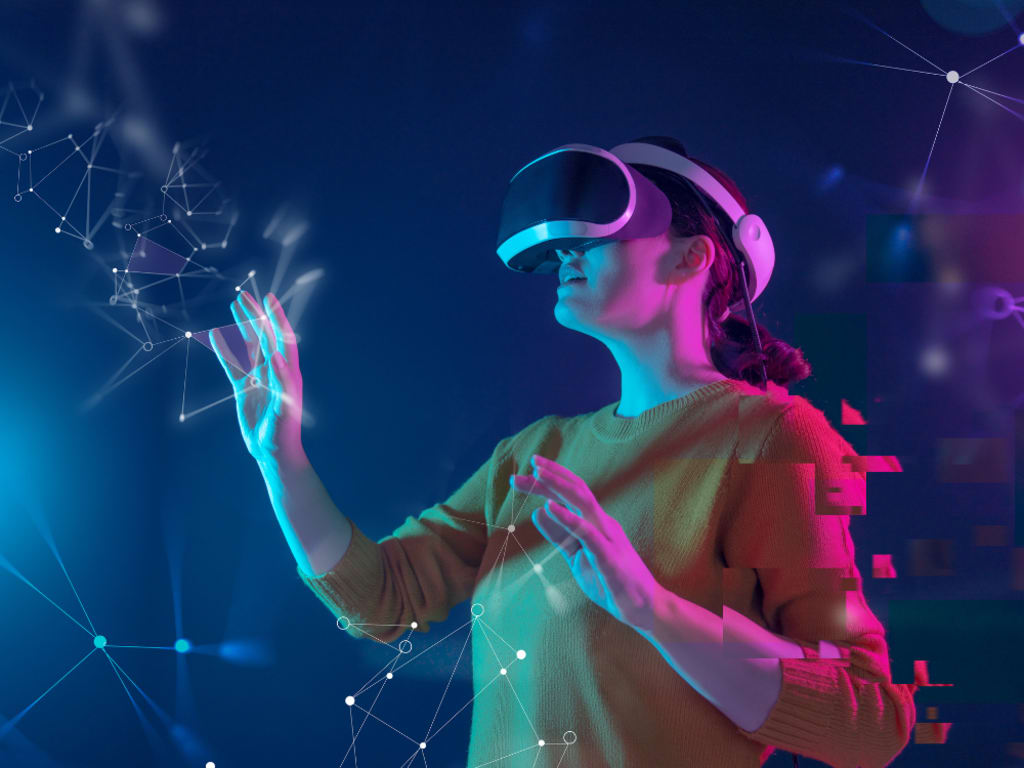The Broad Spectrum of Entertainment
Entertainment is a multi-faceted industry, encompassing a wide range of activities, experiences, and mediums designed to engage, amuse, and even educate audiences. It’s divided into several categories, each offering something different to its viewers. The most prominent forms of entertainment include:
-
Film and Television
Film and television have long been the dominant forms of entertainment, evolving from simple silent films to today’s high-budget blockbusters and diverse television series. The rise of streaming platforms like Netflix, Hulu, Disney+, and Amazon Prime Video has changed how people consume media. Viewers no longer have to wait for a specific time to watch a show or movie; now, on-demand content is available 24/7. The demand for original content has exploded in recent years, with streaming services heavily investing in developing their own movies and shows. -
Music and Concerts
Music has always been a vital part of human culture, providing a universal language for expression and connection. From classical compositions to pop, rock, hip-hop, and electronic dance music, the music industry has witnessed enormous growth. The rise of digital platforms like Spotify, Apple Music, and YouTube has transformed the way we access music. Artists now have the ability to reach a global audience, and music fans can discover new songs with just a click. Concerts and live performances are also a major form of entertainment, with large-scale music festivals and intimate shows drawing in millions of attendees worldwide. -
Sports
Sports entertainment is another significant segment, with millions of fans tuning in to watch games, matches, and tournaments across various disciplines. Whether it's football, basketball, soccer, tennis, or esports, sports provide both athletes and fans with an outlet for passion, competition, and community. The global rise of esports, where professional gamers compete in video game tournaments, has also captured a younger audience, creating new avenues for fan engagement. -
Theater and Performing Arts
Theater, dance, and live performances remain an enduring form of entertainment. Broadway shows, musicals, ballet performances, and opera continue to captivate audiences around the world. Live theater offers a unique experience, where every performance is a one-of-a-kind event. The interactive nature of theater allows audiences to be immersed in stories and emotions that are conveyed through powerful performances. -
Video Games
Video gaming has evolved from a niche hobby to one of the largest and most influential forms of entertainment worldwide. The gaming industry is now larger than both the music and film industries combined. With advancements in technology, video games have become incredibly immersive experiences, with virtual and augmented reality creating interactive environments. Esports, a subset of competitive gaming, has also grown exponentially, attracting large audiences and creating career opportunities for professional gamers. Whether it's casual mobile games or high-end console experiences, gaming offers something for every age and interest. -
Social Media and Digital Content
Social media platforms like Facebook, Instagram, Twitter, TikTok, and YouTube have revolutionized entertainment consumption. Influencers, creators, and vloggers have gained huge followings, making digital content a legitimate form of entertainment. The ease of access to social media allows people to share experiences, create viral trends, and discover new entertainment options. TikTok, for example, has become a cultural phenomenon, with short-form videos capturing the attention of millions. Content creators and influencers are also monetizing their followings, leading to the rise of a new wave of digital celebrities.
The Evolution of Entertainment
Entertainment has changed significantly over time, often driven by advancements in technology, shifts in cultural tastes, and the changing needs of audiences.
-
The Rise of Mass Media
In the early 20th century, the development of radio and television brought entertainment to millions of households. Radio, in particular, became a primary source of entertainment, with programs ranging from news broadcasts to music shows and comedy sketches. The invention of television in the 1930s revolutionized how people consumed entertainment, giving rise to sitcoms, dramas, and news programs that captivated audiences. As television technology improved, color broadcasting and larger screen sizes made watching a more immersive experience. -
The Digital Revolution
The arrival of the internet in the late 20th century paved the way for an entirely new era in entertainment. Digital content began to replace traditional media formats like VHS tapes, CDs, and DVDs. The ability to download and stream movies, music, and television shows allowed audiences to consume content in more flexible ways. As broadband internet connections became more widely available, high-definition video streaming became possible, elevating the quality and accessibility of digital entertainment. -
The Mobile Era
In the 21st century, mobile technology has become a driving force in the entertainment industry. Smartphones, tablets, and wearable devices allow people to access entertainment wherever they go. Mobile gaming, for example, has exploded in popularity, with millions of people playing games on their phones while commuting or waiting in line. Social media platforms also made a leap to mobile devices, making it easier to engage with content and share experiences on the go. Apps like Instagram, TikTok, and Snapchat have become integral parts of everyday entertainment consumption. -
Virtual Reality and Augmented Reality
Virtual reality (VR) and augmented reality (AR) are at the forefront of technological innovations in entertainment. VR headsets create fully immersive experiences, allowing users to enter virtual worlds, play games, and experience movies or concerts from a completely new perspective. AR overlays digital elements onto the real world, enhancing gaming, shopping, and even entertainment in museums or theme parks. As the technology becomes more affordable and accessible, VR and AR are expected to revolutionize gaming, live entertainment, and interactive storytelling.
Trends Driving the Entertainment Industry
Several current trends are reshaping the entertainment industry:
-
Streaming and On-Demand Content
The growth of streaming services has significantly altered how people access movies, TV shows, and music. With services like Netflix, Hulu, Disney+, Amazon Prime Video, and Spotify, audiences have unlimited access to entertainment at their fingertips. The shift from cable TV to on-demand streaming has led to the decline of traditional TV networks, while also disrupting movie theaters. As streaming giants continue to invest heavily in original content, there’s a growing demand for fresh, unique shows and films to attract subscribers. -
Interactive and Immersive Experiences
Consumers are increasingly seeking interactive experiences, leading to the rise of immersive entertainment like VR gaming and interactive movie-watching. Streaming services like Netflix have introduced “choose-your-own-adventure” style content, where viewers make decisions that affect the storyline. Additionally, theme parks and live experiences are incorporating AR and VR to provide more immersive and engaging experiences. -
Diversity and Representation
Diversity and representation have become key themes in the entertainment industry. Audiences are demanding more inclusive representation across race, gender, sexual orientation, and other aspects of identity. This has led to more diverse casting, storytelling, and creative voices in film, television, and music. Representation is seen as not just a moral imperative but also a way to connect with a broader audience and reflect the multicultural world we live in. -
Celebrity Culture and Influencers
The rise of social media has given birth to a new breed of celebrities—social media influencers. These individuals, who gain large followings through platforms like Instagram, YouTube, and TikTok, are reshaping how entertainment is consumed. Brands and advertisers are capitalizing on influencer marketing, while influencers themselves often have greater direct access to their fans than traditional celebrities, creating new forms of fame and engagement.
The Future of Entertainment
Looking forward, the entertainment industry will continue to evolve, driven by technology, societal shifts, and changing consumer demands. The future of entertainment promises further advancements in AI, VR/AR, and immersive media, along with greater integration of digital platforms into our daily lives. As consumers increasingly expect personalized, on-demand content, the industry must adapt to meet these needs while continuing to innovate.
In summary, entertainment is more than just a form of escape; it is an ever-evolving industry that reflects and influences our society, culture, and technological progress. From traditional forms like movies and television to cutting-edge innovations like VR, the world of entertainment offers endless possibilities for creativity and engagement. As new technologies continue to emerge, the boundaries of what constitutes entertainment will expand, offering exciting new experiences for audiences around the globe.


You must be logged in to post a comment.